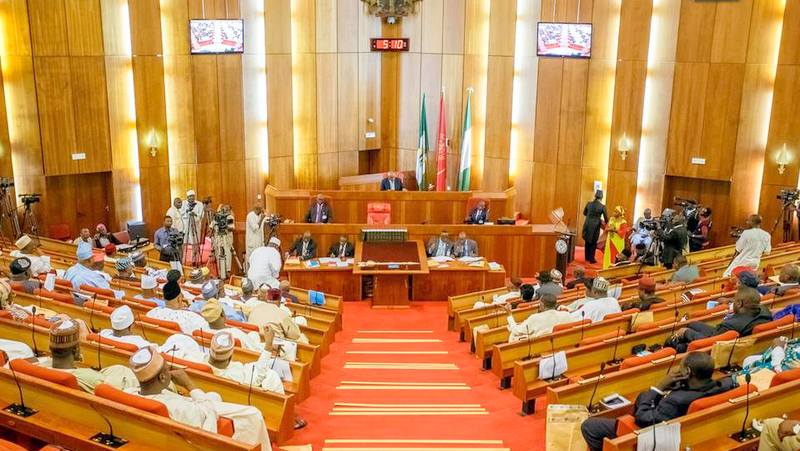News
African Energy Reception: African Energy Chamber, German stakeholders unpack African Green Hydrogen opportunities
The African Energy Chamber (AEC) (https://Energy Chamber.org), serving as the voice of the African energy sector, highlighted burgeoning investment opportunities in Africa’s hydrogen hotspots – including Mauritania, Morocco, Namibia, Egypt and more – during its Invest in African Energy reception in Frankfurt on Thursday.
Aiming to explore new avenues for financing and developing Africa’s sizable extractive resources, the AEC is currently leading an ongoing European energy stakeholder tour – which included stops in London and Oslo last month – targeting enhanced cooperation and partnership in the production, processing, storage and transportation of green hydrogen products and related synthetic fuels, among other critical sources of energy.
“Energy poverty and climate change are two sides of the same coin. Developed countries like Germany need to decarbonise; Africa needs to industrialise,” opened NJ Ayuk, Executive Chairman of the AEC. “Whether it’s oil, natural gas, hydrogen, coal or renewables, we believe in the energy mix. ESG shouldn’t just start with ‘environmental’ and end there. How we address ‘social’ and ‘governance’ is what will transform Africa and bring profits to companies.”
Green hydrogen has emerged as a critical pathway to heightened bilateral trade and investment between Africa and Europe. Due to its abundant solar, hydropower, wind and biomass resources, coupled with falling costs of electrolyzers and associated technologies, the African continent could account for up to 10 per cent of the global hydrogen market by 2050, with hubs already identified in Mauritania, Morocco, Egypt and the entire southern African region.
However, according to Ayuk, this remains contingent on the continent attracting the requisite capital and technology investments. By unlocking just over $1.1 trillion in new investments in hydrogen projects through 2050, Africa could produce up to 60 million tons of green hydrogen capacity – and at a lower cost than other regions – serving to boost electrification and drive economic expansion in the process.
“There has been big talk of green hydrogen in Africa, but not enough investment. Most Africans, and even Germans, are tired of empty words. If you are going to meet your climate goals, you can’t do it with 600 million Africans without access to electricity,” Ayuk continued.
Germany has played a central role in African hydrogen development to date. Last month, the German Federal Ministry of Economic Cooperation and Development announced plans to invest over $45 million in South Africa’s green hydrogen economy through its H2Global initiative, which aims to provide funding to green hydrogen products globally.
Germany has been Namibia’s first international partner to invest in green hydrogen production – announcing a €40-million pledge in August 2021 – with the southern African nation boasting more than 3,500 hours of sunshine per year and hydrogen costs as low as €1.50-2 per kilogram.
In Angola, two German engineering firms have partnered with national oil company Sonangol for the construction of a local green hydrogen facility, with the capacity to produce 280,000 tons of green ammonia. Upon completion in 2024, Angola would become the first African country to supply Germany with green hydrogen.
“We need to use German technology to develop energy in a cleaner, more sustainable way that drives the future. If we don’t use this moment to do it, then we miss a big opportunity to be change makers. Africans are willing and open to work with Germans to utilise advanced technologies and expertise – not just in Africa, but also in Ukraine, Asia, Europe and around the world. This is the time to drive technology,” stated Ayuk.
The European bloc at-large is seeking to diversify its energy supplies and reduce dependence on Russian fossil fuels, while fueling its own clean energy transition. According to its REPowerEU plan, the European Union aims to import 10 million tons of renewable hydrogen by 2030, with a view to accelerating the uptake of renewable hydrogen, ammonia and other derivatives in heavily industrialized sectors, including aviation, maritime transport and manufacturing.
News
Lagos announces 40% rebate on payment of planning permits, duties

…grants 90-Day amnesty for property owners to perfect papers
In a bid to ensure that the State maintains its high developmental standard, the Lagos State Government has announced a 40 per cent rebate on Planning Permit payments to Lagosians.
Speaking at a press briefing on Wednesday organised to mark the first year, second term in office of Governor Sanwo-Olu at the Bagauda Kaltho Press Centre, the Secretariat, Alausa, Ikeja, the Commissioner for Physical Planning and Urban Development, Dr Oluyinka Olumide noted that the initiative is to encourage property owners in the State to do the right thing by ensuring their properties pass all official procedures.
He also noted that Mr Governor has graciously granted a 90-day amnesty period to owners/developers of existing property to regularise their property and help in promoting a sustainable physical environment.
Dr, Olumide disclosed that the Amnesty initiative would allow owners and developers of existing buildings to obtain planning permits without the payment of statutory penal fees within the amnesty window from May 2 to July 30, 2024, with a 5% discount applicable to payments completed within 10 working days of the bill’s issuance.
He described the incentives, that is the rebate to civil servants and the Amnesty Programme, as a relief measure to mitigate the effects of the current economic hardship being experienced in the built environment, adding that applicants are expected to submit all relevant documents for assessment through the LASPPPA Head Office and District Offices in the 57 Local Government Areas and Local Council Development Areas.
In his words, “Mr Babajide Olusola Sanwo-Olu-led administration is not leaving any stone unturned in bequeathing a Lagos Smart City that is premised on a sustainable functional Physical Environment, achievable only by wholesale compliance with regulatory requirements.”
“The administration which is people-oriented and compassionate in formulating policies that favour inclusiveness, ease of compliance and citizens’ participation has given the 40 per cent rebate in planning permit for Civil Servants to get more and more of them to experience the process and become wilful advocates of the good works of the government in the sector and also the Amnesty Window of three months that we just opened last week to allow planning permit applications from owners of existing developments without payment of the statutory penalty is a good case in point.”
“For emphasis, the window opens from May 2nd to July 30th, 2024, when the waiver on penalty payments on existing developments shall subsist”, he added.
The Commissioner, while appreciating Mr Governor on the gesture, warned that non-compliance would draw the wrath of the government that is determined to do good for the largest number of Lagosians.
He stated that the administration would not compromise the safety of every individual in the State.
According to him, “I hereby solicit the continued cooperation of the general public to adhere strictly to the Physical Planning Laws of Lagos State by following the standard steps to the planning and construction of buildings to promote safety and orderly, livable, and sustainable environment for the wellness and wellbeing of the people.”
“Mr Babajide Sanwo-Olu has charged every officer under this responsibility to take the life of every Lagosian as important as theirs and be steadfast in discharging their duties to ensure no further collapse of buildings, neither should there be the loss of any life. With this rebate and after the 90-Day Amnesty, any property that falls on the wrong side of physical planning laws shall face the consequences squarely”, he stressed.
The Commissioner also highlighted some of the activities embarked upon by the Office of Physical Planning including the over 74% rate in the grant of Planning Permits in the last year and the preparation and review of Master Plans and Model City Plans such as the Lagos Island Model City Plan and Alimosho Model City Plan.
Others are the preparation of nine Action Area Plans, nine Development Guide Plans and the delivery of the right of way for 16 public infrastructure projects in the State.
News
Senate considers bill on unemployment benefit scheme


The Senate passed a bill seeking the establishment of a National Internship and Unemployment Benefit Scheme on Wednesday.
The bill was considered and passed for a second reading after a presentation by its sponsor, Senator Shuaib Salisu (APC, Ogun Central), who explained that the piece of legislation, aims to offer unemployed graduates in Nigeria some part-time jobs where they could gain experience and earn stipends.
Senator Salisu added that the bill intends to create a database of unemployed Nigerian youths, particularly graduates, with their respective disciplines and also establish a framework that will guide the provision of part-time jobs for youths while they search for full-time jobs.
According to him, the scheme, when established, would provide hope for graduates and allow them to acquire experience before they secure full-time employment.
He argued that the scheme would help address insecurity and criminal activities that arose from unemployment.
The lawmaker also acknowledged existing agencies such as the National Directorate of Employment, NDE and the Industrial Trust Fund, ITF, but noted that they have not been targeted adequately to the beneficiaries.
Senator Salisu believes that the scheme, which will have a database, will be more effective in streamlining interventions for the beneficiaries.
Though many of the senators who contributed supported the proposed legislation, Senator Ahmed Wadada (SDP, Nasarawa West), argued that the bill may not be the solution needed to tackle unemployment.
But Senator Wadada said the focus should be on creating an enabling environment for the private sector to thrive and consequently create jobs, not thinking of benefits for the unemployed.
“If the environment is enabling enough to up to 10 Dangotes, the rate of unemployment will be reduced to the barest minimum. The emphasis at all times should be to create the needed enabling environment,” he said.
After passage for a second reading, the Senate President, Senator Godswill Akpabio, mandated the Senate Committee on Labour and Productivity to give it more legislative inputs and report back within four weeks.
News
Gov. Abiodun calls for creation of Ogun Division of Court of Appeal


Gov. Dapo Abiodun of Ogun on Wednesday in Abeokuta called for the creation of the Ogun Division of the Court of Appeal to aid quick dispensation of justice in the state.
Abiodun, while receiving the President of the Court of Appeal, Justice Monica Dongban-Mensem, noted that this would ease the workload of judges in the Ibadan Division of the Court.
He commended the Appeal Court President for working tirelessly to ensure appeals were quickly taken care of in all the Court’s divisions through her “decongestion initiative”.
“This will lead to an efficient justice delivery system in the country as justice delayed is justice denied,” the governor said.
Abiodun explained that his administration had carried out several reforms aimed at repositioning the justice system in Ogun.
He appreciated members of the state judiciary led by Justice Mosunmola Dipeolu for their support, especially in setting up the special court handling cultism-related cases.
Earlier, Justice Dongban-Mensem had said her visit to the Ibadan Division was to decongest appeal cases that had been held up due to lack of time.
”This was occasioned by election and commercial appeals,” she said.
Dongban-Mensem disclosed that Ibadan Division had one of the highest workloads of all the divisions of the Court of Appeal.
”This was made worse by the depletion of judges as a result of posting, promotion, retirement or death.
“It is even regrettable that the Ibadan Division, which was two divisions in the past, was reduced to one, leading to the current workload.
”But I assure that something will be done to address the imbalance,” the Appeal Court President said.
She commended the Abiodun-led administration for the transformation taking place in Ogun and for carrying the state judiciary along in the scheme of things.
-
capital market2 years ago
Rt.briscoe, FBNH, Others halts negative performance of stock market
-
Finance3 months ago
Court orders Sen. Victor Umeh to repay N136m bank debt to AMCON
-



 Abuja Update2 months ago
Abuja Update2 months agoUNDP, FG partnership needed to achieve inclusion, equity- Minister
-
Abuja Update1 month ago
Banks drive stock market performance with N147bn gain
-



 Health3 weeks ago
Health3 weeks agoCapacity training will reduce migration of health workers- NPHCDA
-



 Business2 weeks ago
Business2 weeks agoTingo Group unveils Tingo Electric, Tingo Cola drink at Lagos launch
-



 Infotech1 month ago
Infotech1 month agoWorld Backup Day: NITDA urges Nigerians to ensure backup of data
-
News4 months ago
Oil thieves sponsoring malicious media campaign against Navy – Spokesman




